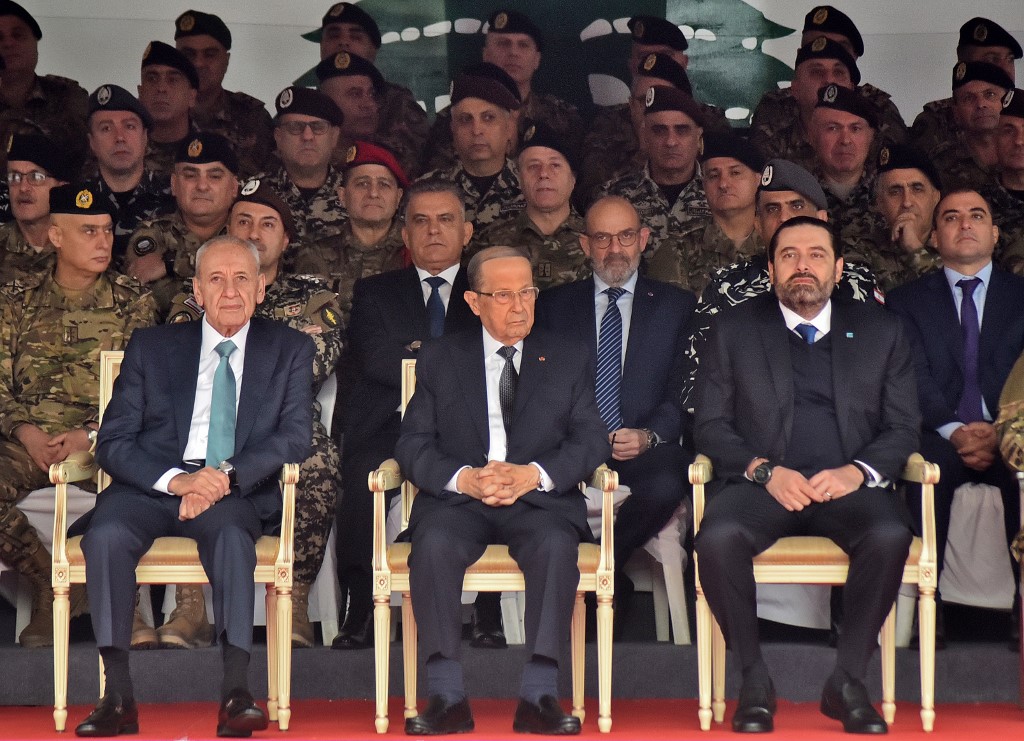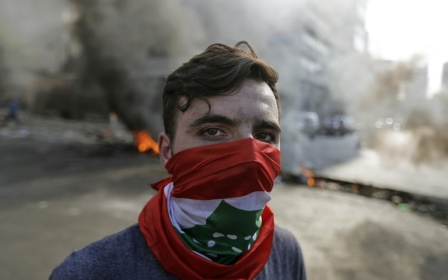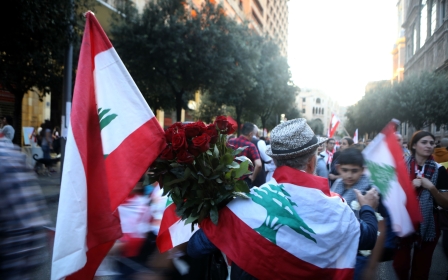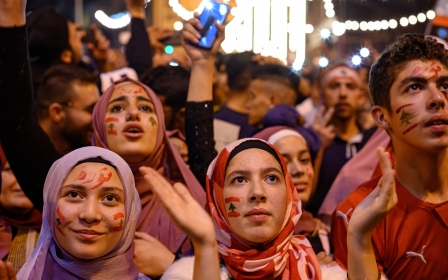Protesters hold 'alternative parade' to mark Lebanon's independence
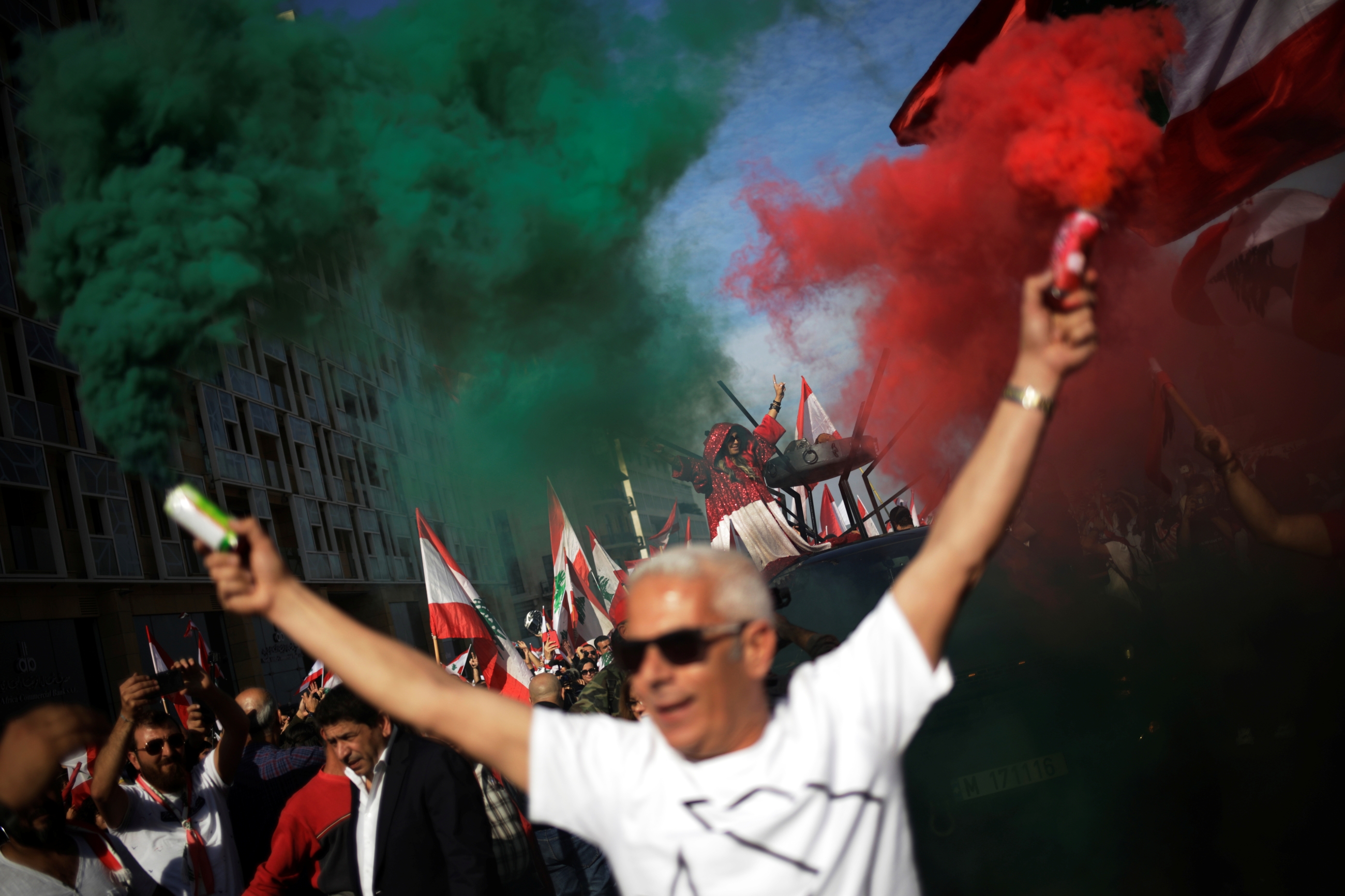
Anti-government protesters in Lebanon kicked off a series of events on Friday to mark the country's "true independence" alongside an annual military parade commemorating 76 years of self-rule.
Weeks of protests have forced Lebanon's government to scale down its annual independence military parade and instead held a smaller procession in front of the country's defence ministry.
In central Beirut, which is usually closed to the public on Independence Day as Lebanon's leaders and military descend for the parade, thousands of protesters marched through the streets, singing and holding banners decrying the country's corruption and government.
Joey Ayoub, a Lebanese writer and researcher, described the alternative parade as an important step in maintaining pressure on the government to step down.
"This parade was organised as an alternative to the government's parade and a continuation of the popular rejection of this government," Ayoub told Middle East Eye.
New MEE newsletter: Jerusalem Dispatch
Sign up to get the latest insights and analysis on Israel-Palestine, alongside Turkey Unpacked and other MEE newsletters
"It was also a way for those who want to celebrate Independence Day to do so without legitimising the government."
Lebanon gained its independence after 23 years of French rule in 1943.
Demonstrations have paralysed Lebanon since 17 October, when a series of proposed tax hikes brought hundreds of thousands of Lebanese onto the streets. They have called for an end to corruption and the removal of Lebanon's sectarian and ineffectual political class.
On Sunday, an independent candidate was elected head of the Bar Association, and two days later demonstrators prevented a parliament vote on a controversial amnesty law.
Two people have so far been killed during the protests, a far cry from the hundreds dead in similar demonstrations in Iraq.
Lebanese of all ages maintain hope they can draw the country out of endless political deadlocks and revive its crumbling economy.
A revised version of the national anthem is making the rounds online to celebrate Lebanese women, many of whom have played a central role in the recent protests.
Middle East Eye delivers independent and unrivalled coverage and analysis of the Middle East, North Africa and beyond. To learn more about republishing this content and the associated fees, please fill out this form. More about MEE can be found here.


